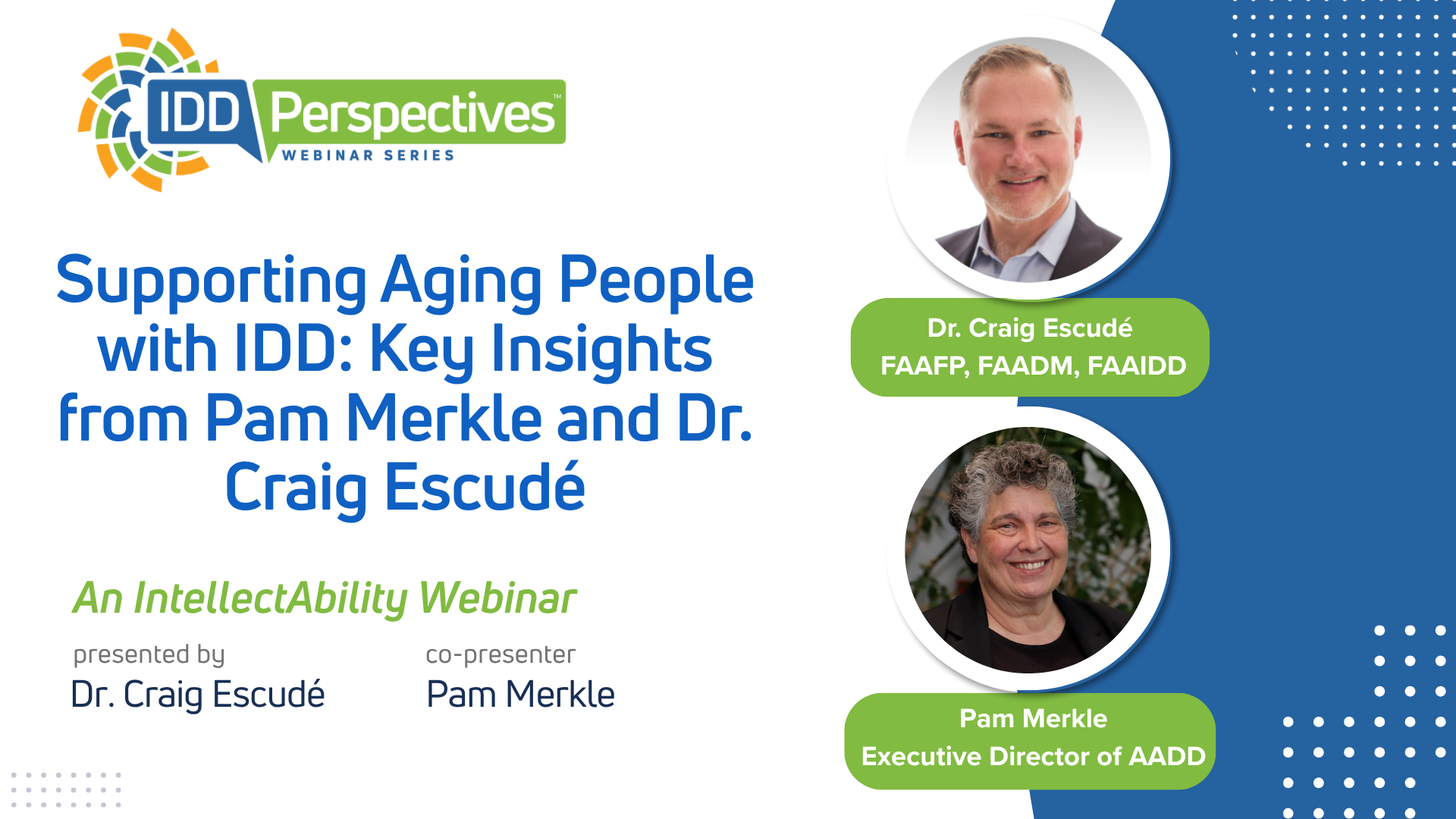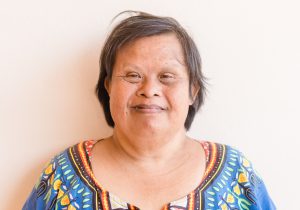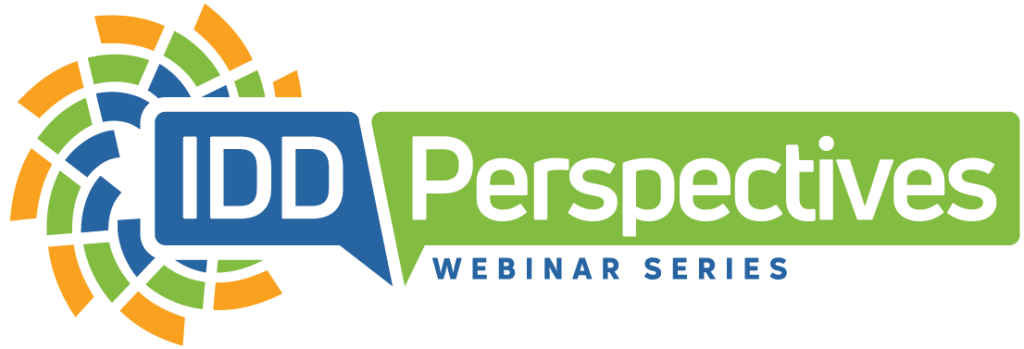
Supporting Aging People with IDD: Key Insights from Pam Merkle and Dr. Craig Escudé
By Aliah Farley
As life expectancy increases, people with intellectual and developmental disabilities (IDD) are living longer than ever before. This presents both opportunities and challenges for service providers, families, and healthcare professionals.
In a recent IDD Perspectives webinar, Pam Merkle, Executive Director of the Association on Aging with Developmental Disabilities, joined Dr. Craig Escudé, President of IntellectAbility, to discuss the unique issues people with IDD face as they age and practical strategies to help them thrive.
Shared Concerns in Aging
Pam opened the discussion with a powerful reminder: the concerns people with IDD experience as they age are largely the same as those faced by the general population.
Drawing on surveys of adults with IDD, she highlighted the most frequently mentioned worries:
- Dementia
- Depression
- Health problems
- Loneliness
- Medication side effects
Underlying many of these issues is the theme of loss, the loss of friends, family, independence, mobility, and sometimes even one’s home or trusted providers. “For people with IDD,” Pam explained, “loss often happens at an accelerated pace and with fewer supports in place.”
A Proactive Approach to Healthy Aging
Too often, services for people with IDD become reactive, addressing crises after they happen. Pam emphasized the importance of taking a proactive approach instead, fostering health, identity, and belonging long before problems arise. This aligns with the concept of healthy aging, which focuses on maintaining functional ability and overall well-being throughout life.
Her “Healthy Recipe for Aging” includes:
- Exercise and nutrition: supporting physical health through movement and balanced diets. These activities offer significant benefits for maintaining physical abilities and promoting healthy aging.
- Cognitive stimulation: encouraging brain health through puzzles, memory games, and activities. Cognitive stimulation, along with education, helps preserve cognitive abilities and other skills, supporting cognitive resilience in older adults.
- Friendship development: building supportive social networks to prevent isolation. Social connection provides benefits for emotional health and helps maintain other skills important for daily living.
- Identity and reminiscence: affirming who people are through meaningful roles, hobbies, and life stories.
- Combating loneliness: creating opportunities for connection, purpose, and joy.
Education is a key factor that supports healthy aging and cognitive resilience. In addition to these, other factors such as social and environmental influences also contribute to the aging process and overall health outcomes.
Pam illustrated this with creative programs developed at her agency, such as “Senior Hotshots,” where older adults with IDD can redefine themselves not only by age, but by the unique talents and interests that shape their identities. Through these programs, older adults with IDD can contribute to their communities, sharing their experiences and skills.
The results, she noted, are striking: fewer emergency room visits, improved mental health, and stronger self-esteem. These benefits highlight the positive outcomes of ongoing efforts to promote healthy aging and address the various factors that influence well-being in older adults.
Addressing Dementia and Cognitive Decline
When someone with IDD shows signs of memory loss, Dr. Escudé stressed the need to rule out medical causes first. Identifying risk factors for dementia and cognitive decline in patients with IDD is crucial for early detection and management. “Don’t jump immediately to dementia,” he cautioned. Hearing or vision loss, medication side effects, thyroid conditions, depression, or even untreated pain can mimic dementia. Comprehensive medical care and timely intervention are essential to address these issues and improve outcomes.
Hearing health, in particular, is critical: untreated hearing loss accelerates cognitive decline and contributes to dementia risk. Research shows that dementia and related conditions can significantly affect individuals with IDD, with chronological age and risk factors such as lifestyle and comorbidities playing a major role in disease progression. Conditions originating in childhood, like cerebral palsy or Down syndrome, can also influence the risk of dementia and late effects as people age.
For those with confirmed dementia, consistency is key. Supporters, including nurses, should maintain familiar staff and routines, use memory aids, and provide clear visual cues. Ongoing follow-up care is important to monitor changes and adjust interventions as needed. Dementia is a leading cause of mortality among older adults with IDD, highlighting the importance of early intervention and continuous support for these patients. Screening tools from the National Task Group on Intellectual Disabilities and Dementia Practices (NTG) can also help identify changes early.
Supporting Mental Health and Depression
Distinguishing between temporary sadness and clinical depression is essential. Both Pam and Craig emphasized the need to assess physical and emotional health together. A sudden withdrawal, for example, could indicate anything from grief to untreated illness.
Therapy and medication may play a role, but so do trauma-informed supports: creating safe environments, building connection, and giving people meaningful choices in their daily lives.
Promoting Health Through Preventive Care
Preventive healthcare remains one of the greatest unmet needs for people with IDD.
Pam urged providers to ensure that aging adults receive routine screenings—such as mammograms, prostate exams, and colonoscopies—that are often overlooked in this population. It is essential to provide timely follow-up to ensure patients complete necessary preventive care and remain engaged in ongoing health management. Supporters must also navigate the risks of polypharmacy: once someone is on five or more medications, the chance of dangerous interactions rises significantly.
Advocates play a vital role in bridging the gap between medical professionals and people with IDD, supporting patients and helping to manage their healthcare needs. Staff who can “translate” complex medical language, track symptoms, and prepare questions for doctors help ensure people get the quality healthcare they deserve.
Ongoing efforts are needed to manage risk factors, late effects, and secondary disorders through continuous medical care and timely intervention, aligning preventive care with World Health Organization guidelines and research-based best practices. The safety of healthcare settings is paramount, and legal acts such as the Act on Guarantee of Right to Health and Access to Medical Services for People with Disabilities help ensure access to medical care for people with IDD.
Housing and Transitions
Affordable housing was another pressing issue discussed in the webinar. Pam explained that some people lose housing support after decades, particularly when HUD-backed arrangements expire. Families and providers must plan early for transitions, always seeking the least restrictive and most person-centered living arrangement possible.
When moves are necessary, familiarity matters. Keeping routines, personal items, and trusted staff in place can soften the disruption and preserve a sense of stability.
Coping with Loss
As people with IDD age, loss becomes a recurring reality—whether it is the passing of parents, peers, or longtime staff.
Friendship development programs and reminiscence activities can provide vital comfort and continuity. Equally important is giving people the opportunity to grieve openly, with the same compassion and validation anyone else would receive.
Takeaways for Supporters
The conversation closed with practical reminders for families, staff, and providers:
- Be proactive. Don’t wait for crises. Focus on prevention, screenings, and healthy routines.
- Support identity. Help people maintain meaningful roles and relationships, and encourage them to participate actively in their communities and decision-making.
- Build friendships. Encourage connections that protect against isolation.
- Advocate for healthcare. Ensure providers understand the unique needs of people with IDD.
- Meet people where they are. Individualized support makes the biggest difference.
Conclusion
Aging is a universal experience, but for people with IDD, it comes with added challenges, often compounded by limited resources and systemic barriers. Yet as Pam Merkle and Dr. Craig Escudé emphasized, with the right supports in place, people with IDD can age with dignity, health, and fulfillment.
Their message is clear: the best outcomes come from proactive, person-centered strategies that honor identity, strengthen community, and ensure access to quality healthcare.
For more resources, including practical guides and healthcare spending in IDD, visit IntellectAbility’s website or explore the full IDD Perspectives webinar series.





